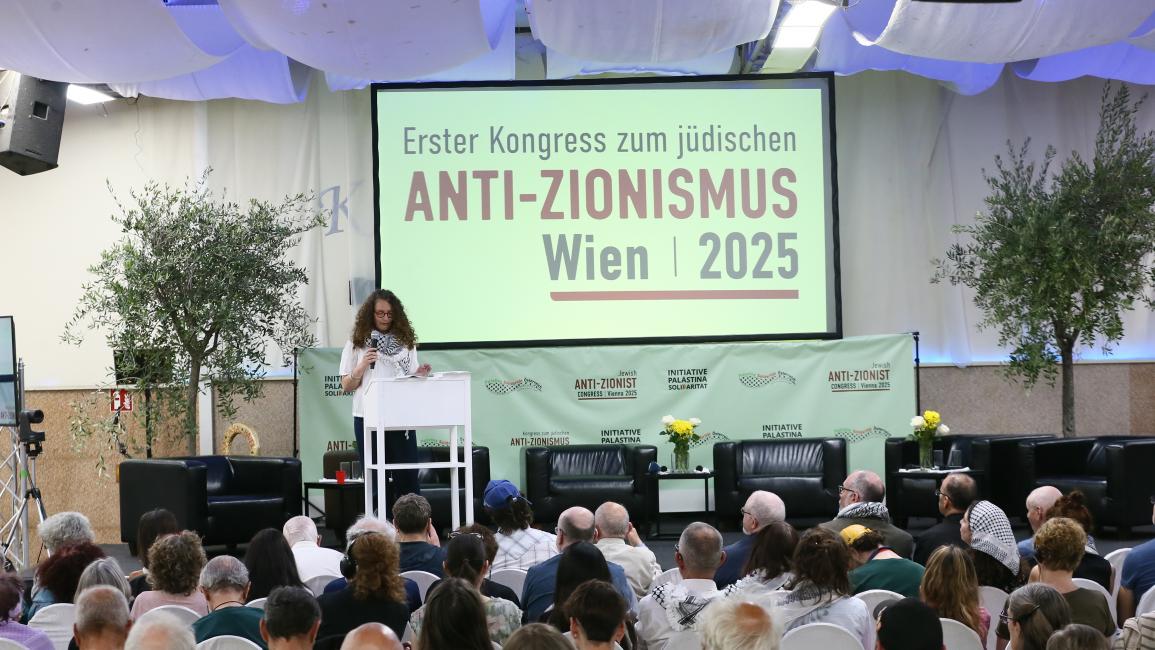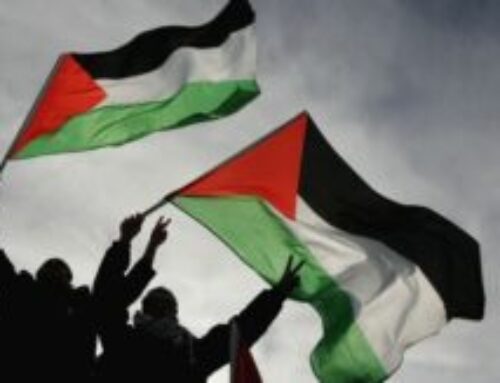The Austrian capital, Vienna, witnessed the first international Jewish anti-Zionist conference, with the participation of approximately 500 figures from around the world.
Held in mid-June 2025, the conference aimed to break the Zionist movement’s monopoly on representing Jews globally and to affirm that The usurping entity cannot claim to represent all Jews worldwide.
This unprecedented event is widely seen as a significant moral and political support for the Palestinian struggle, voiced by Jews from within the very community that Zionism claims to represent.
Conference Organization and Background
The conference was organized by the Austrian-based organization For Democracy and Human Rights in Palestine, known for its anti-Zionist and anti-imperialist stances.
Local Jewish activists in Vienna, engaged in anti-Zionist initiatives, also contributed to organizing the event, alongside Jewish networks supporting Palestine from across Europe and the U.S.
Vienna was deliberately chosen for its symbolic significance as the birthplace of Zionism; it was in this city that Theodor Herzl published his book The Jewish State in 1896. Today, it hosts a Jewish front rejecting Zionism from the very location where the ideology was born.
The conference was held amid the escalating aggression by the usurping entity against Gaza. Organizers considered this a key reason for the conference’s urgent timing. It also responded to efforts in Austria and across Europe to silence voices of solidarity with Palestine under the pretext of “antisemitism.” Participants sought to demonstrate that opposing Zionism is not equivalent to antisemitism.
Key Outcomes and the Vienna Declaration
The conference issued the “Vienna Declaration,” which presented a bold and clear vision. The declaration rejected Zionism’s claim to represent Judaism and condemned the use of Judaism as a tool to justify colonialism, apartheid, and genocide against the Palestinian people.
Participants stressed that anti-Zionism is not antisemitism; rather, Zionism itself poses a threat to the ethical and moral foundations of Judaism. The conference called for the dismantling of the Zionist system, describing it as an irredeemable colonial and racist regime that must be entirely abolished.
The conference adopted several key demands and recommendations in support of Palestinian rights, most notably:
- International Isolation and Boycott of the usurping entity: Participants called for the suspension of the usurping entity’s membership in the United Nations and the European Union, and for the revival of all forms of boycott (academic, cultural, etc.) against its institutions. They noted that the global BDS movement now enjoys substantial international Jewish support.
- Prosecution of Perpetrators of Crimes: The conference urged the prosecution of the usurping entity and its leaders before the International Criminal Court for war crimes and crimes against humanity, proposing the expansion of these legal definitions to include colonialism and siege.
- Right of Return and a Democratic State: The conference reaffirmed its support for the right of Palestinian refugees to return to their homeland as a pillar of historical justice, and proposed a vision for a single democratic state on all of historic Palestine that includes all its inhabitants after ending the apartheid regime.
The conference also confirmed the legitimacy of Palestinian resistance in all its forms, describing the Palestinian struggle as a just liberation movement against a racist colonial system.
It strongly condemned the West’s unconditional support for The usurping entity—particularly the roles of the U.S. and Germany—and considered the repression of solidarity with Palestine under the guise of fighting antisemitism to be a shameful complicity that legitimizes The usurping entity’s crimes against Palestinians.
Notable Moments and a Growing Jewish-Palestinian Alliance
Over the course of three days, the conference hosted prominent Jewish and Palestinian speakers, including Israeli historian Ilan Pappé and Palestinian researcher Salman Abu Sitta, among others.
They described the usurping entity as an apartheid regime and a settler-colonial project akin to South African apartheid. Holocaust survivors in attendance emphasized that it is unacceptable to remain silent in the face of atrocities committed in the name of Jews.
Orthodox Jewish rabbis also asserted that Jewish teachings demand siding with the oppressed.
In one of the most emotional moments, a 91-year-old Austrian Jewish woman—herself a Holocaust survivor—sang the Palestinian national anthem Mawtini in Arabic alongside attendees, as a gesture of solidarity with Gaza.
Through these unprecedented messages and stances, the conference established a historic precedent proving that Zionism does not monopolize the Jewish voice. True Judaism, participants affirmed, stands for justice and human rights and refuses to be used in the service of oppression and colonialism.
This event lays the groundwork for a Jewish-Palestinian alliance aiming to dismantle the Israeli apartheid system and build a future rooted in freedom and dignity for all.





